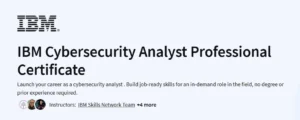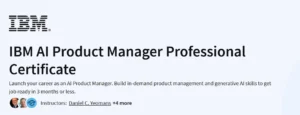What will you learn in Building a GraphQL Endpoint with Deno Course
Understand Deno’s secure, modern runtime and its built-in TypeScript support for server development
Grasp GraphQL fundamentals and schema design: types, queries, mutations, and resolvers
Create a Deno HTTP server and integrate a GraphQL endpoint using community modules (e.g.,
oak+gql)
Connect your GraphQL API to both SQL (PostgreSQL) and NoSQL (MongoDB) databases for flexible data persistence
Develop and test GraphQL queries and mutations with tooling like GraphQL Playground and automated tests
Package and deploy your Deno-based GraphQL service, leveraging Docker and environment-based configuration
Program Overview
Module 1: Introduction to Deno, TypeScript & GraphQL
⏳ 30 minutes
Topics: What is Deno? Benefits over Node.js, built-in TypeScript support, GraphQL basics
Hands-on: Install Deno, run a “Hello, GraphQL” example, explore GraphQL Playground
Module 2: Setting Up Your Deno GraphQL Server
⏳ 45 minutes
Topics: HTTP frameworks for Deno (
oak), GraphQL middleware (oak-graphqlorgql)Hands-on: Create a basic
/graphqlendpoint that responds to simple queries
Module 3: Schema Design & Resolver Implementation
⏳ 1 hour
Topics: Defining type definitions, query and mutation structures, resolver functions
Hands-on: Implement a
Usertype withcreateUser,getUser, andlistUsersoperations
Module 4: Integrating PostgreSQL with Deno
⏳ 45 minutes
Topics: SQL vs. NoSQL considerations, Deno Postgres client setup, schema migrations
Hands-on: Connect to PostgreSQL, define tables, and wire resolvers to perform CRUD via SQL
Module 5: Integrating MongoDB with Deno
⏳ 45 minutes
Topics: MongoDB driver for Deno, document modeling, collections vs. tables
Hands-on: Configure a MongoDB connection, define a
Postcollection, and implement GraphQL resolvers for it
Module 6: Testing & Tooling
⏳ 30 minutes
Topics: Writing unit tests for resolvers, using GraphQL Playground, linting and formatting
Hands-on: Write tests for query/mutation logic and validate schema correctness
Module 7: Deployment & Dockerization
⏳ 30 minutes
Topics: Dockerfile for Deno, multi-stage builds, environment variables, Deno Deploy overview
Hands-on: Containerize your GraphQL service and run it via Docker Compose with linked databases
Module 8: Capstone – Feature Extension & Best Practices
⏳ 30 minutes
Topics: Authentication with JWT, pagination, batching, error handling, rate limits
Hands-on: Add a
loginmutation with JWT issuance and secure your GraphQL endpoint
Get certificate
Job Outlook
Backend Engineer (Deno/GraphQL): $95,000–$140,000/year — build high-performance API services with modern runtimes
Full-Stack JavaScript/TypeScript Developer: $90,000–$130,000/year — leverage GraphQL and Deno for end-to-end web applications
API Architect / Developer Advocate: $100,000–$150,000/year — design and document GraphQL schemas and champion Deno adoption
Skills in Deno and GraphQL position you at the forefront of server-side development, enabling you to craft secure, type-safe, and efficient APIs.
Specification: Building a GraphQL Endpoint with Deno Course
|
FAQs
- Prior knowledge of TypeScript or GraphQL is helpful but not required.
- Introductory modules cover Deno and GraphQL fundamentals.
- Hands-on examples help you understand schema design and resolvers.
- Labs gradually introduce TypeScript concepts in a practical context.
- Additional resources may be needed for absolute beginners in TypeScript.
- Covers PostgreSQL integration for relational data storage.
- Covers MongoDB integration for document-oriented data.
- Shows how to wire resolvers to perform CRUD operations on both databases.
- Explains when to choose SQL vs. NoSQL depending on your project.
- Prepares you to handle multi-database scenarios in real-world applications.
- Teaches Dockerizing a Deno-based GraphQL service.
- Explains multi-stage builds for efficient container deployment.
- Covers using environment variables for secure configuration.
- Introduces Deno Deploy as a cloud deployment option.
- Ensures your API is production-ready with testing and configuration best practices.
- Provides foundational knowledge for queries and mutations.
- Introduces async resolver patterns for database operations.
- Covers batching and pagination for efficient data handling.
- Limited coverage of subscriptions or real-time features; extra resources may be needed.
- Prepares you to extend your API with real-time features independently.
- Develops skills in a modern, secure runtime (Deno) and TypeScript.
- Teaches GraphQL schema design, queries, mutations, and resolvers.
- Prepares you to work with both SQL and NoSQL databases.
- Adds deployment and Dockerization experience, valued by employers.
- Positions you for backend, full-stack, and API developer roles with competitive salaries.





